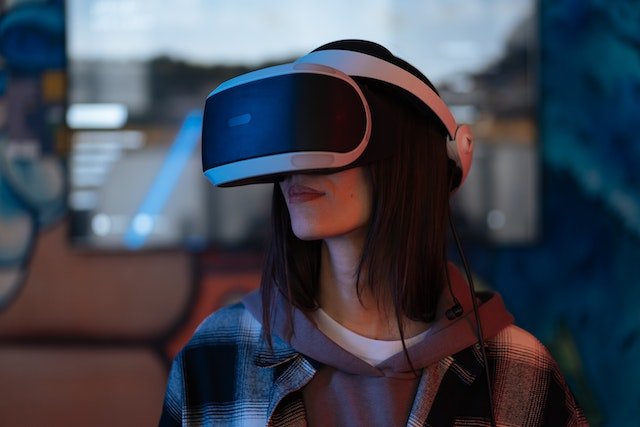Augmented Reality (AR) has emerged as an innovative and transformative technology that blurs the lines between the physical and digital worlds. With the ability to overlay computer-generated content onto the real environment, AR has the potential to revolutionize a multitude of industries by providing captivating and engaging experiences that fully immerse users in interactive digital environments. Before you get into the details, take a break and play some online casino games, and hope you get lucky.
Discovering the Realm of Augmented Reality
Augmented Reality, unlike Virtual Reality (VR) which creates entirely computer-generated environments, enriches the existing reality by seamlessly integrating digital elements into the user’s real-world environment. This innovative technology enables users to interact with both physical and virtual worlds simultaneously, opening up a new era of possibilities.
AR Applications: Unleashing Creativity and Engagement
Gaming and Entertainment
The realm of gaming and entertainment has been fundamentally transformed by AR. It has successfully merged virtual characters and objects with real-world surroundings, resulting in captivating and interactive gaming experiences. The popular mobile game Pokémon Go showcased the immense potential of AR, captivating millions of players worldwide.
Education and Training
AR is revolutionizing education and training, making learning more interactive and immersive. By leveraging AR, students can visualize complex concepts, engage with virtual simulations, and interact with 3D models, fostering a deeper understanding of subjects. Moreover, AR is revolutionizing professional training by offering realistic virtual environments for medical simulations and other practical scenarios.
Architecture and Design
Not only that, but AR is reshaping the fields of architecture and design, providing professionals with innovative tools to enhance their work processes. By overlaying virtual architectural models onto physical spaces, AR enables architects, designers, and engineers to create immersive experiences for clients. This technology facilitates effective communication and informed decision-making before the construction phase.
Retail and E-commerce
The retail industry is also benefiting from this by creating interactive and personalized shopping experiences. Customers can virtually try on clothing and accessories, visualize furniture in their own homes, or preview products in different colors and configurations. By bridging the gap between online and physical shopping, AR enhances customer engagement and boosts sales.
Advancements and Future Possibilities
Augmented Reality continues to evolve rapidly, fueled by advancements in hardware, software, and computer vision algorithms. Wearable devices like smart glasses are pushing the boundaries of AR, making experiences more immersive and seamless. The future holds immense potential for widespread AR adoption, with applications in healthcare for surgical assistance, remote collaboration tools, and even AR-enhanced navigation systems for everyday use.
Overcoming Challenges and Ethical Considerations
Although AR promises remarkable advancements, it also faces challenges and ethical considerations. Privacy concerns, data security, and potential addiction to augmented experiences are areas that necessitate careful consideration. Ensuring inclusivity, accessibility, and responsible usage of AR technology are crucial for its widespread adoption and acceptance.
Augmented Reality possesses the transformative potential to redefine our perception and interaction with the world. From gaming and education to architecture and retail, AR is revolutionizing diverse industries, offering immersive and interactive experiences. As technology advances, AR is set to become an integral part of our daily lives, shaping the future of entertainment, communication, and problem-solving. Embracing the power of augmented reality unlocks a world of exciting possibilities, ushering us into a more immersive and enriched reality.



